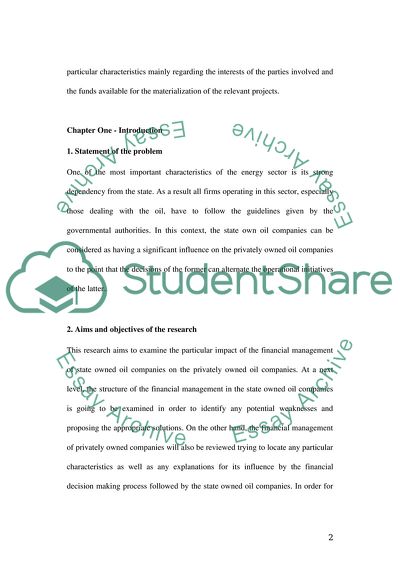Cite this document
(Impact of Financial Decision Making of State Owned Oil Companies Research Proposal, n.d.)
Impact of Financial Decision Making of State Owned Oil Companies Research Proposal. Retrieved from https://studentshare.org/finance-accounting/1706734-impact-of-financial-decision-making-financial-management-of-state-owned-oil-companies-vs-privately-owned-oil-companies
Impact of Financial Decision Making of State Owned Oil Companies Research Proposal. Retrieved from https://studentshare.org/finance-accounting/1706734-impact-of-financial-decision-making-financial-management-of-state-owned-oil-companies-vs-privately-owned-oil-companies
(Impact of Financial Decision Making of State Owned Oil Companies Research Proposal)
Impact of Financial Decision Making of State Owned Oil Companies Research Proposal. https://studentshare.org/finance-accounting/1706734-impact-of-financial-decision-making-financial-management-of-state-owned-oil-companies-vs-privately-owned-oil-companies.
Impact of Financial Decision Making of State Owned Oil Companies Research Proposal. https://studentshare.org/finance-accounting/1706734-impact-of-financial-decision-making-financial-management-of-state-owned-oil-companies-vs-privately-owned-oil-companies.
“Impact of Financial Decision Making of State Owned Oil Companies Research Proposal”. https://studentshare.org/finance-accounting/1706734-impact-of-financial-decision-making-financial-management-of-state-owned-oil-companies-vs-privately-owned-oil-companies.


